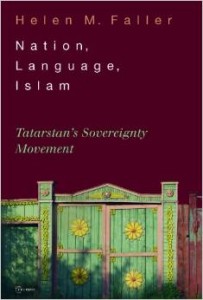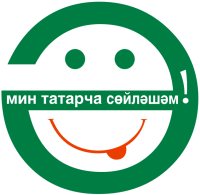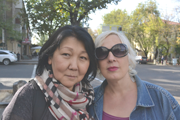Nation, Language, Islam
You can purchase my first book HERE.
“Nation, Language, Islam is a study of
how people living in a particular post-
Soviet space imagine their cultural
possibilities and their connections
to political and social groups. In her
careful exploration of two language
communities, people bilingual in Tatar
and Russian and Russian-only
speakers, Helen Faller uncovers
distinctive ‘referential worlds.’ Based
on vivid analysis of Tatar cultural
practices, including song, festivals,
educational policy, and revived Islam,
Dr. Faller reveals the multiple roots
of Tatarstan’s palpable civic peace and
its multi-cultural politics. Helen Faller’s book captures the ambiguities of the situation in which Tatarstan’s citizens exist, the limitations and possibilities of their Soviet and post-Soviet experience, as well as the resilience and grace of present-day Tatar culture.”
Jane Burbank, New York University
“a richly detailed account of the complexities and ambiguities involved in a post-Soviet nation-building project, vividly illustrating how Tatarstan’s quest for sovereignty affected the lives of those who experienced it”
“breadth in no way comes at the expense of depth”
“Faller’s up-close examination of Tatarstan’s sovereignty movement is as yet unparalleled in providing insight into the lives of those who inhabit one of Russia’s most culturally rich regions. It is, in short, essential reading…”
Central Asian Survey
“engaging and insightful book”
“insightfully challenges normative notions of nation-state building and identity construction processes.”
“Faller thoughtfully engages with the way different agents (citizens, politicians, newspapers) interpret and engage with language and culture”
“a well-written and useful read”
Europe-Asia Studies
“a clear illustration that the role of language in nation-building is not as homogeneous as many Western theorists, focusing mainly on a bourgeois, male, Western public, have implied.”
Journal of the Royal Anthropological Institute
Faller’s vision of Tatarstan, and Russia, is much bleaker.
“… Tatarstan sovereignty no longer exists as a political movement. The majority of Tatar-speakers have lost hope in the possibility of changing their society into one more equitable than that which existed during the Soviet period,” she writes in conclusion. Anxiety and despair are pulling Tatars in two directions – toward religiosity and, for younger people, toward digitally-based cultural and language activism. “What these two trends mean for Russia’s future development as a multi-national state is unclear, though it is unlikely that a peaceful transition towards inclusive pluralism will occur in the foreseeable future.”
Shopping Cart

Your shopping cart is empty
Visit the shop













